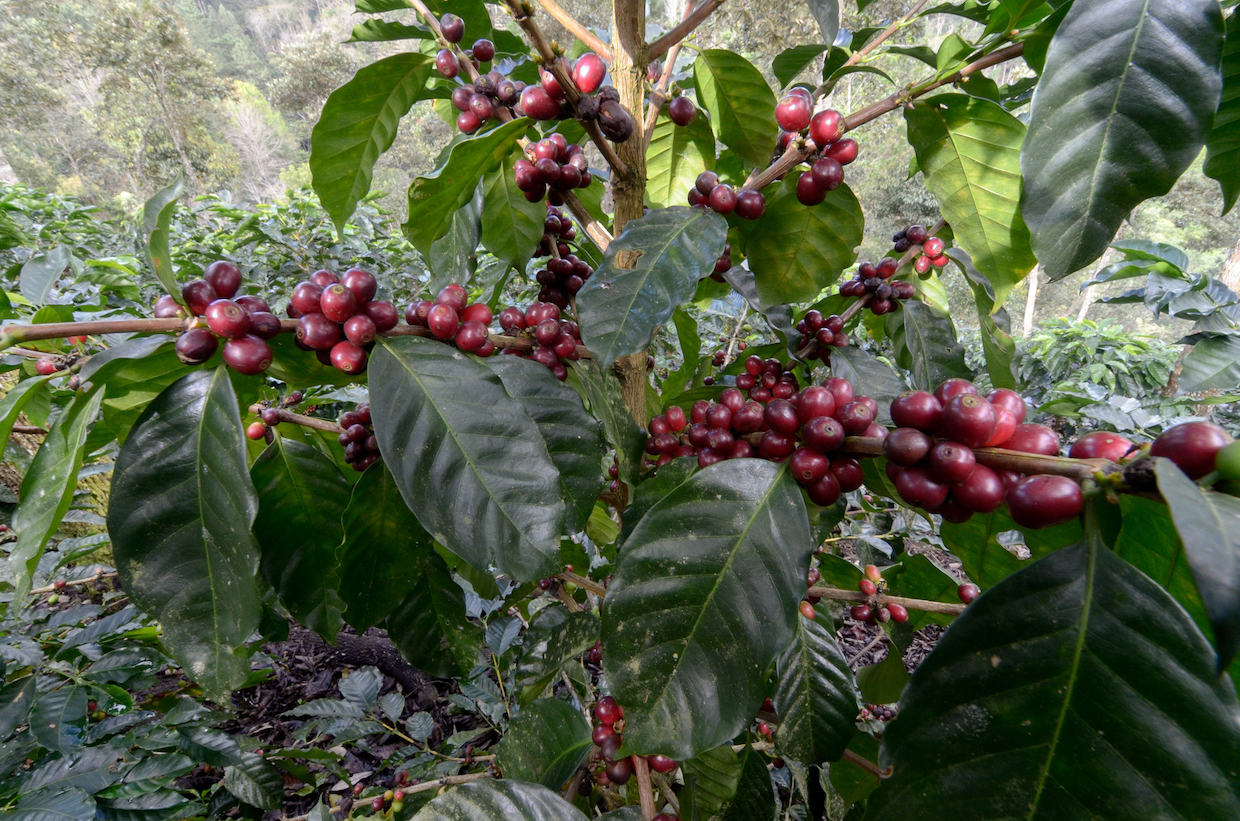A new F1 hybrid coffee variety called Starmaya may forever change the coffee breeding landscape by dramatically improving producers’ access to higher-yielding, disease-resistant and high-quality seeds, according to a recent announcement from the nonprofit World Coffee Research.
The group said Starmaya — developed through a collaboration between the global agroindustrial development and trading firm ECOM and the French Agricultural Research Centre for International Development (CIRAD) — is the first F1 hybrid ever propagated by seed, rather than through biotechnology in a lab, marking a potential sea change in accessible coffee breeding.
“What it could mean for coffee producers is widespread access to an elite class of varieties that could reshape the industry,” WCR said in an announcement last week.
An F1 hybrid is the first generation of offspring from two different parental types. In the case of coffee, they can be developed to combine producer-focused positive traits related to such factors as climate resilience and yield with consumer-focused positive traits such as quality.
“Currently, they can only be produced by technically sophisticated nurseries, of which there are only a handful in the world,” WCR said of coffee F1 hybrids, adding that the Starmaya variety will be tested in farmers’ fields this year. “Therefore, although these varieties are ‘best in class,’ almost no farmers have access to them. Starmaya may change that.”
According to WCR, the development of F1 hybrids to this point has been relatively expensive, and none of the existing coffee-focused labs are producing more than 1 million seeds per year, limiting access among producers. A one-hectare seed garden, however, can produce enough seed for more than 200 hectares of coffee. WCR likened the breeding and production capabilities of Starmaya to the creation of maize hybrids that has allowed a six-fold increase in corn production in the United States over the past 60 years.
“Coffee is typically sold to farmers as seed. In crops like corn, F1 hybrid seeds are created through manual controlled pollination,” WCR said. “This is not economically feasible in coffee due to the biology of the plant. In order to produce F1 hybrid seeds in coffee, you need a workaround. Researchers have identified that workaround — the inability of one parent to produce pollen (called male sterility). It led to the creation of Starmaya — the first F1 hybrid Arabica plant able to be propagated by seed.”
WCR said it plans to incorporate Starmaya into two of its ongoing major research programs, while supporting the creation of additional seed-propagated hybrids designed for high quality, high yield, disease resistance, and climate resilience and adaptation.
“So far, Starmaya is the only F1 hybrid from seed. But researchers are actively looking for more varieties exhibiting male sterility that could be used in breeding,” WCR said. “World Coffee Research is also actively working to identify how male sterility works such that it might be possible to turn sterility on and off in any variety. This would open up the universe of known Arabica varieties to be used in breeding new F1 hybrids.”
Nick Brown
Nick Brown is the editor of Daily Coffee News by Roast Magazine.
Comment
8 Comments
Comments are closed.







Great, more robusta hybrids, sure it will be great for coffee quality. I smell BS.
It’s Arabica, though…? Sounds like good news to me.
Is it? Where does it say no arabica/canephora hybrids or other species will be bred? That’s where most of the research is, lower quality higher yielding coffee. You haven’t thought this out have you? If more farmers grow higher yielding robusta hybrids, yields will go up, more coffee will be produced so the supply will go up and prices will decrease. Additionally, farmers will not be able to obtain a premium or differential for quality as the quality will be bad. How does this really help anyone but commodity roasters?
“Starmaya — the first F1 hybrid Arabica plant able to be propagated by seed.”
From this article.
So, according to the announcement, it’s a quality Arabica strain that farmers only have to buy once and can propagate themselves, and it’s also high-yielding and disease-resistant.
But don’t take my word for it—read the article. Or even click the World Coffee Research link for more information!
Rachel, who do you work for? Are you aware that Catimor is considered Arabica but is a robusta hybrid? Are you aware Catimor and other robusta hybrids do generally not taste as good as heirloom arabica?
Look at the tree in the photo, it shows signs of robusta genetics (the broad dark green leaves, heavy fruiting, leaves pointing down to the ground).
You got me. I work for the evil Robusta lobby.
I hear what you’re saying—I just think it’s pretty compelling to read that they think they’ve solved the quality issue. Isn’t it? Wouldn’t that be great?
I’m a little concerned about climate-related supply issues.
I’m not. If farmers cannot grow coffee in a particular region, they should grow a different crop. If the supply of coffee is lower, farmers might make a sustainable wage because demand and prices will rise.